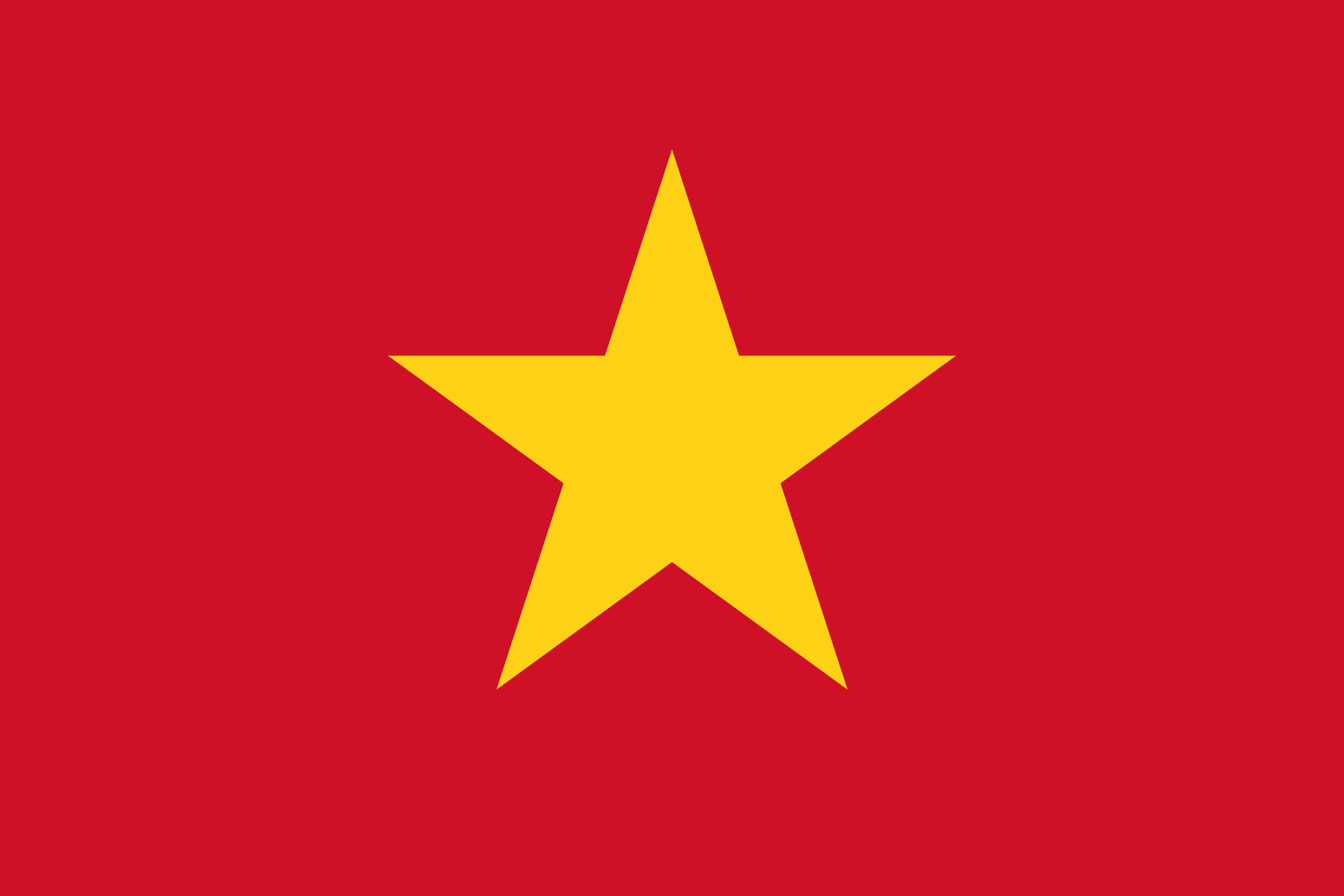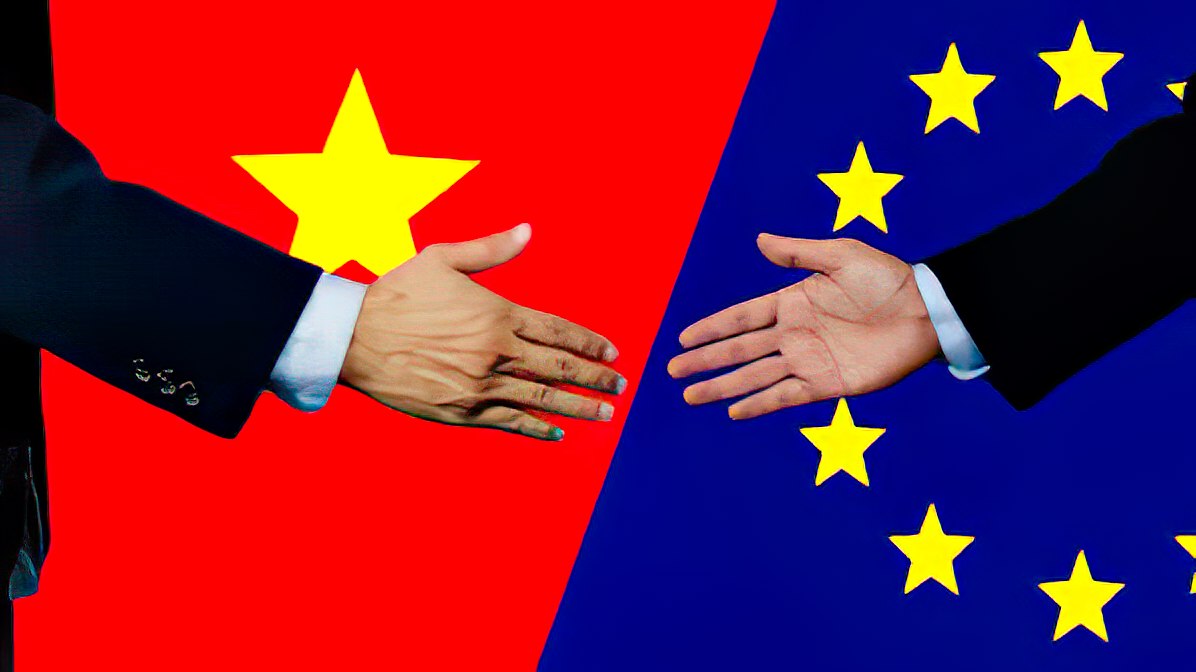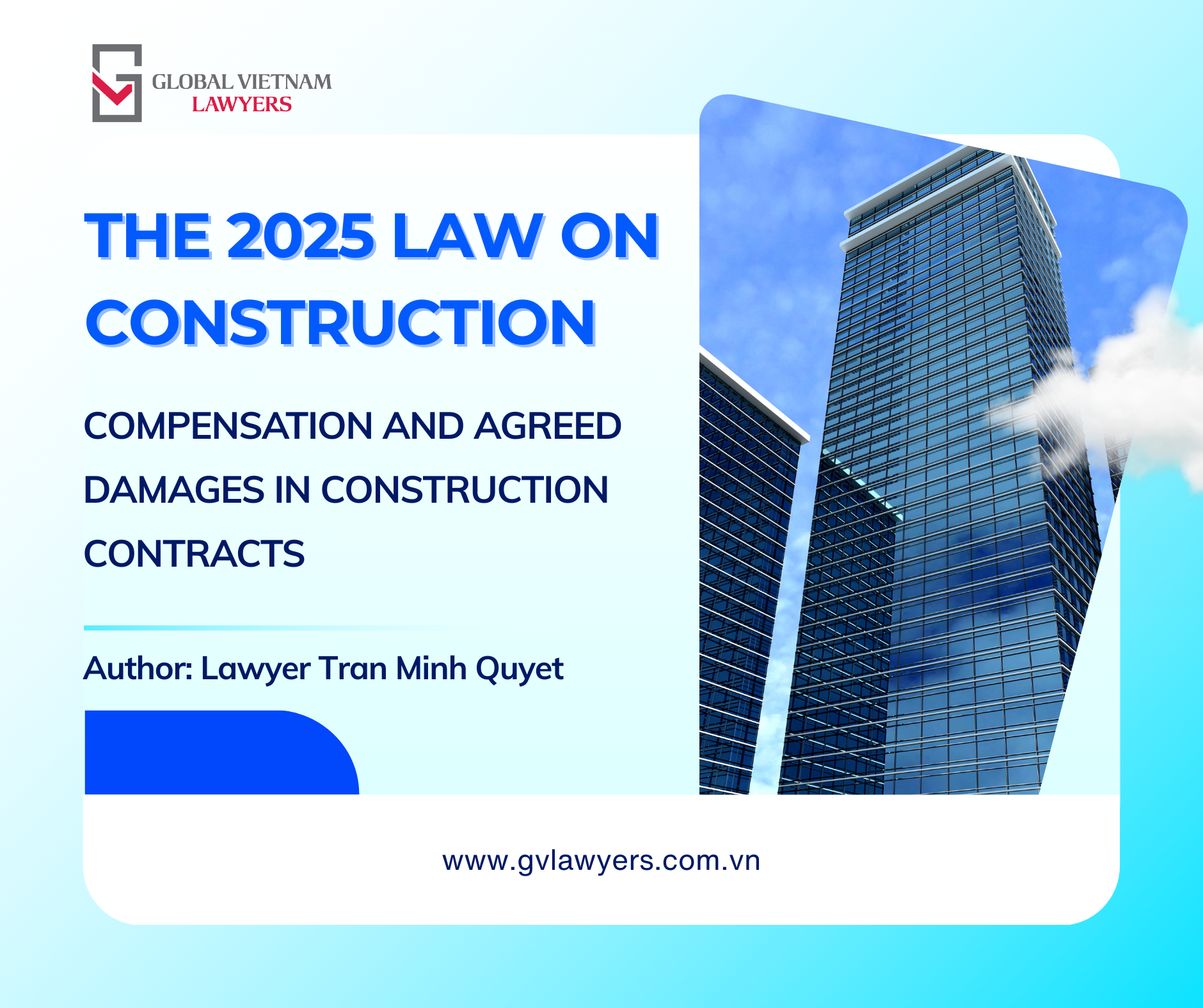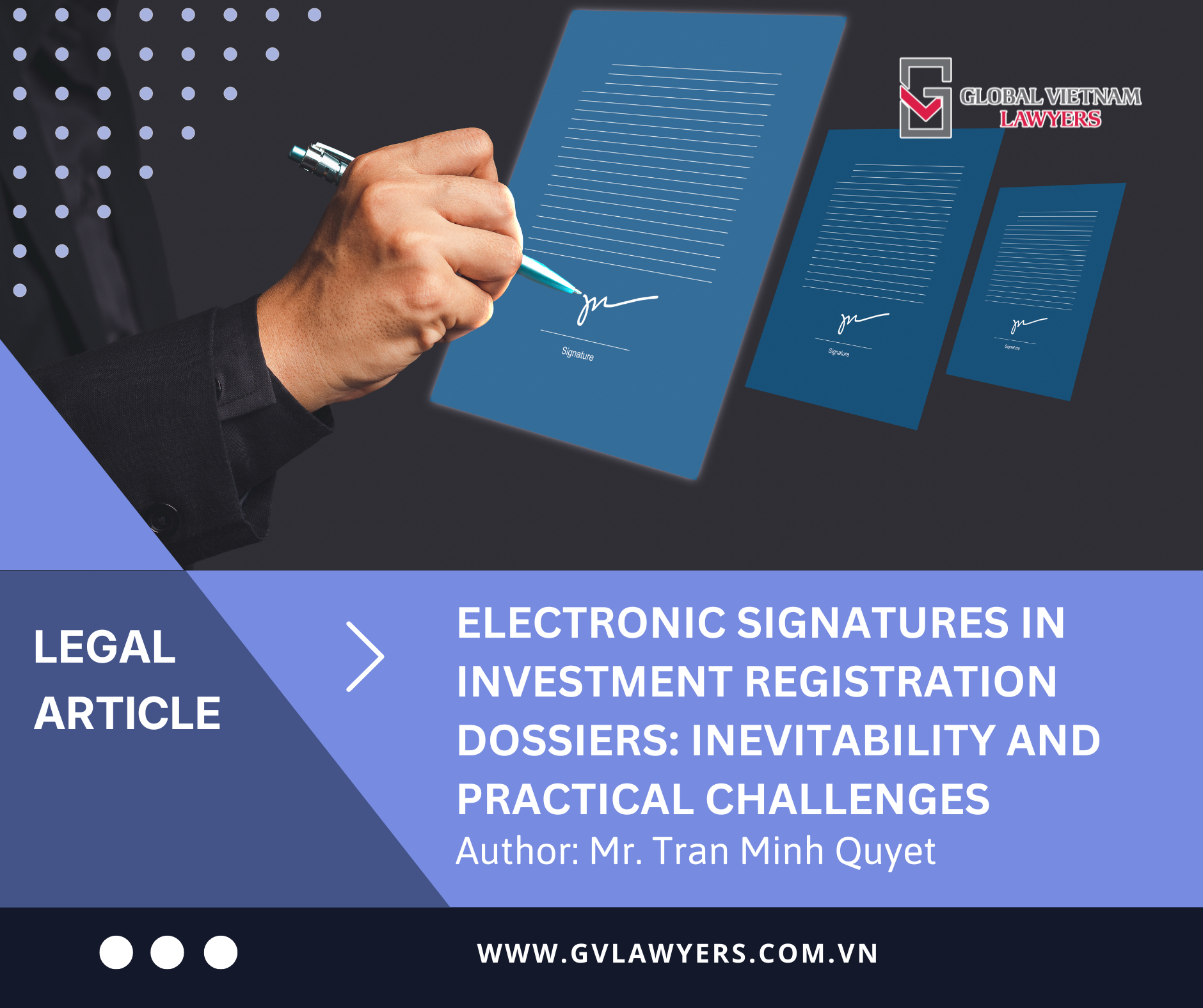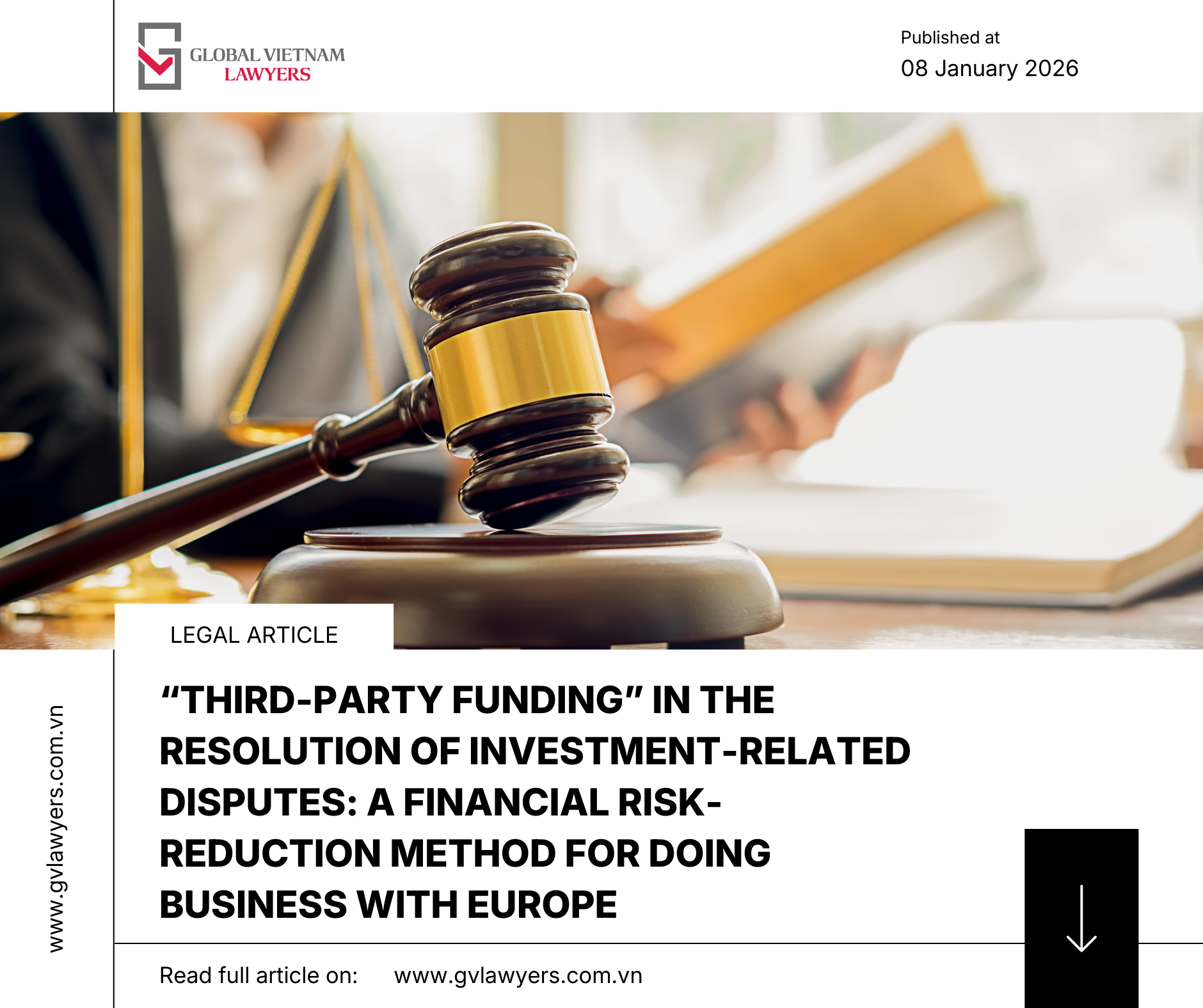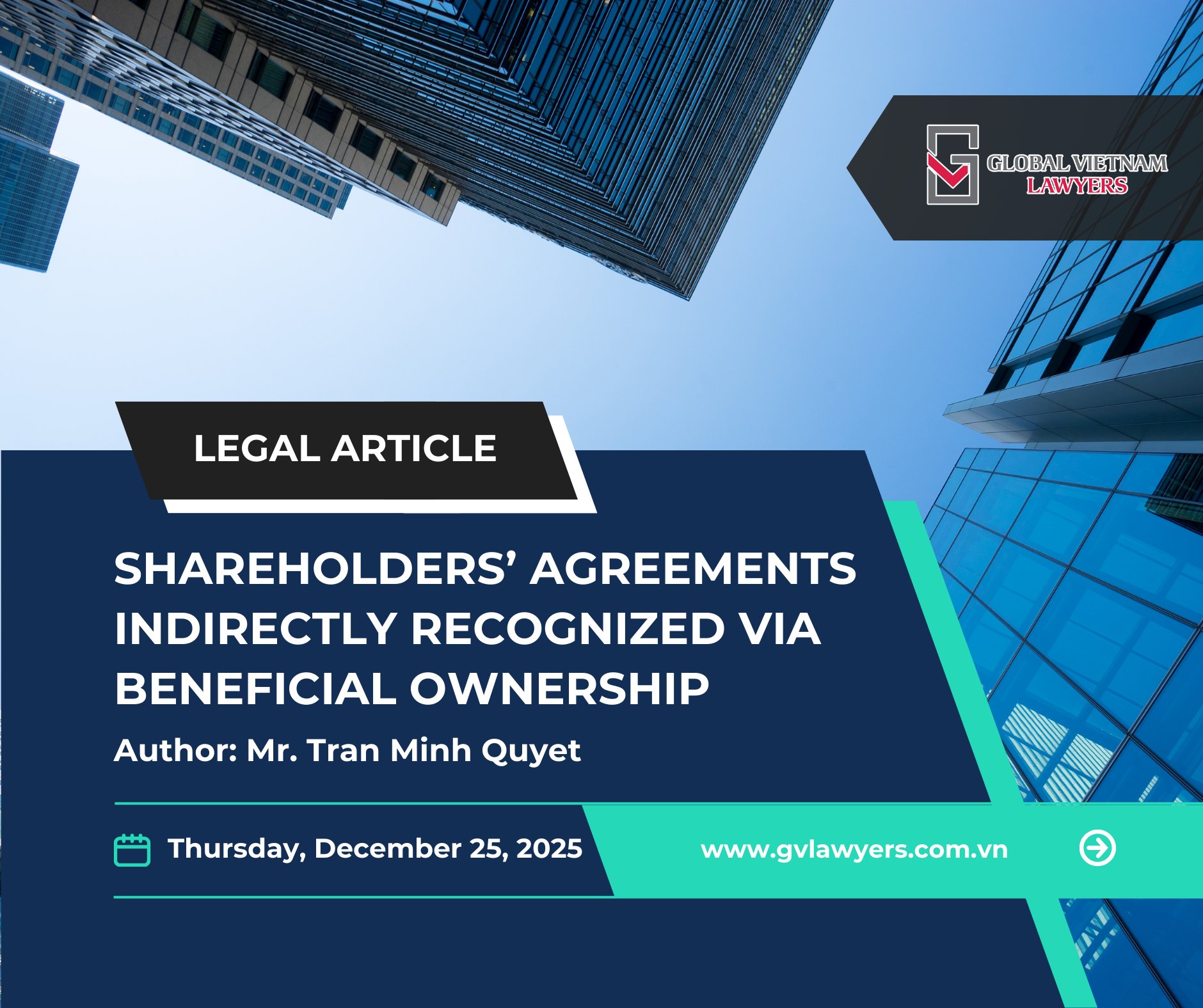GV Lawyers would like to introduce the article of Mr. Luong Van Ly and Lawyer Hoang Phuoc titled “Dispute Resolution According to EVIPA“ published on Saigon Economic Times as of March 19, 2020, Issue No. 12.2020 (1.527).
***
With 66 investment protection agreements and 10 bilateral and multilateral free trade agreements that Vietnam is negotiating to sign and implement, the issue of dispute resolution between foreign traders / investors and the Government increasingly draw attention. The EU Vietnam investment protection agreement (EVIPA) that has been recently approved by the European Parliament contains some noteworthy points that need to be appropriately addressed.
DISPUTE RESOLUTION AT AN INVESTMENT COURT
The method of case-based arbitration, over a long period of application, increasingly reveals multiple limitations, affecting the objectivity and accuracy of the ruling as well as the risk of impairing the national management competence of the State agencies. Investment dispute resolution by the Investment Court is a new way of resolving disputes currently supported by many countries to replace the case-based arbitration which is often stipulated in the previous protection agreements. The EVIPA marks the first milestone where Vietnam has specified this method of dispute resolution in an investment protection agreement of Vietnam.
The Investment Court System under the EVIPA includes a first instance court and an appellate court. The first instance court has nine members whose three are EU nationals, three are Vietnamese citizens and three are citizens of other third countries. The appellate court has six members, including two members as EU citizens, two members as Vietnamese citizens and two members as citizens of other third countries. Members of both tribunals will be appointed by the committee (established under EVIPA, composed of representatives of the EU and Vietnam to manage the implementation of EVIPA) for a four-year term and possibly reappointed once.
Each investment dispute brought to the Investment Court will be resolved by a trial panel of the first instance court and in case of an appeal, the appeal will be resolved by a trial panel of the appellate court. Each trial panel (at both levels) will consist of three members and be formed from the members of the respective court level, of which one member is a citizen of EU member states, one member is a Vietnamese citizen and one member belongs to citizens of the third country. Members as nationals of third countries will chair the panel. For the first instance level, an exception is that the disputing parties may agree to settle by a panel consisting of only one member who is a third country citizen. Presidents of the respective courts are those who have the authority to appoint members of the trial panels. Appointments are made on a random, unpredictable basis and ensure equal opportunity for participation in court hearings.
ORDER OF CLAIMS
In order to start the lawsuit process at the Investment Court, the EVIPA stipulates that investors must first send a request for consultation to the other party. The request for consultation must be sent within three years from the date when the investor knows or must know about the breach or damage that has occurred; or within two years from the date when the investor ceases to sue in panels/courts under national law but not more than seven years from the date when the investor knows or must know about the breach or damage that has occurred.
If the dispute is not resolved within 90 days of the date of sending the request for consultation, the investor has the right to send notice of lawsuit intent to the other party. Only if the dispute remains unresolved within six months of submission of the request for consultation and at least three months have elapsed since the date of sending the notice of intent to initiate a lawsuit, the investor has the right to file a lawsuit at the first instance court. If the investor does not do the same within 18 months of the request for consultation, the investor will be deemed to have withdrawn the lawsuit and free from right to file a lawsuit under this mechanism.
Within 90 days of filing the case, the president of the first instance court will appoint a trial panel to resolve the case. The first instance trial panel will issue an interim decision within 18 months of filing the lawsuit and the disputing parties have the right to appeal the decision within 90 days of the date of issuance. If not appealed within the allotted time, the temporary ruling will become final and officially effective.
JUDGEMENT OF THE INVESTMENT COURT
One note in the judgement of the Investment Court is that the measures that the Investment Court may declare are somewhat limited. Specifically, under the EVIPA, the Investment Court can only issue a judgement that compels the violating country to do the following: compensation for damages and interest payment; returning assets to investors or legal entities that the investors own or control. The Investment Court is not authorized to repeal relevant national measures. This is to ensure the principle of balance between the protection of investment and respect for the national management authority of the State agencies, a principle the EVIPA values and embodies throughout all the EVIPA’s regulations on dispute resolution.
Although somewhat limited in terms of measures the Investment Court may declare, the EVIPA marks an important milestone providing for the ability to immediately enforce judgements in member states without the need to pass procedures for recognition and enforcement in the country. Under the EVIPA, the final judgement of the Investment Court will be enforced by each party of the agreement as if it were the final court judgment of that party and will not be appealed, reviewed, canceled, etc. Currently, Vietnam reserves the right to apply this provision to the final ruling of which Vietnam is the defendant within five years of entry into force of the agreement. Therefore, within this five-year period, the recognition and enforcement of the final judgments of the Investment Court of which Vietnam is the defendant will apply under the 1958 New York Convention.
METHOD OF SETTLEMENT THROUGH ARBITRATION
The EVIPA does not have separate provisions on arbitration rules that apply to disputes between investors and the government despite having arbitration rules that apply to disputes between the governments signing the EVIPA and procedures for mediation that apply to disputes between investors and the government.
With respect to arbitration applicable to investor-government disputes, the EVIPA only has provisions on the code of ethics for arbitrators in Annex 8. Regarding proceedings, as aforesaid, the EVIPA only stipulates that: upon request of the Investment Court to resolve by arbitration, the plaintiff has the right to request settlement under the ICSID Auxiliary Rules (ICSID: International Centre for Settlement of Investment Disputes) or UNCITRAL Arbitration Rules (UNCITRAL: United Nations Commission on International Trade Law).
It is necessary to hereby reiterate that Vietnam has neither acceded to the ICSID Convention or the ICSID Auxiliary Rules nor recognized the UNCITRAL Arbitration Rules. With the application and implementation of the EVIPA, if approved by the National Assembly, Vietnam will accept the application and implementation of the auxiliary rules ICSID and arbitration rules UNCITRAL on an uncommon basis and only with regard to disputes with the EU, EU member states and investors with EU nationalities.
METHOD OF SETTLEMENT THROUGH MEDIATION
In addition to the method of resolving disputes at the Investment Court, the method of settlement through conciliation is also prescribed. A party to a dispute may request settlement by means of mediation at any time during the dispute resolution process, in writing, to the other party. Accordingly, the requesting party may refer to an existing mediation agreement between the two parties or, if there is no mediation agreement, request the other party to conduct mediation. The recipient must respond within 45 days of receiving the request.
The mediator may be chosen by the parties to the dispute within 15 days of the receiving party agreeing to mediate. The mediator may choose from among the members of the Investment Court. The parties or, in the event that the parties do not agree to select a mediator, any party may request the President of the Investment Court to appoint a conciliator among the members of the Investment Court who are not citizens of Vietnam or of EU member states.
The mediation process begins once the mediator is selected. The parties will endeavor to complete the mediation process within 60 days of the mediator being selected/nominated. Mediation ends when the parties reach on successful mediation; or when the mediator announces it is impossible or unnecessary to continue the mediation process; or when either party requests termination.
The proceedings in the Investment Court will be suspended when the parties to the dispute have agreed to mediate until the mediation process has ended.
In the section dealing with disputes, whether disputes between governments or disputes between investors and the government, for Vietnam, there are a number of issues that need to be appropriately addressed: (i) enforcing the judgements of the Investment Court: for the time being, we have five years of grace but in order to prepare, five years is not a long time; (ii) becoming a member of the Investment Court, with the training and experience criteria set forth in the EVIPA and training Vietnamese legislators and attorneys to protect Vietnamese citizens’ legitimate rights and interests while trading and investing in EU member countries; (iii) disseminating and promoting, even training Vietnamese traders and investors operating in the EU on the provisions and requirements of the EVIPA and the Vietnam-EU Agreement on free trade; and (iv) acceding to the ICSID Convention and recognize the UNCITRAL Arbitration Rules.


